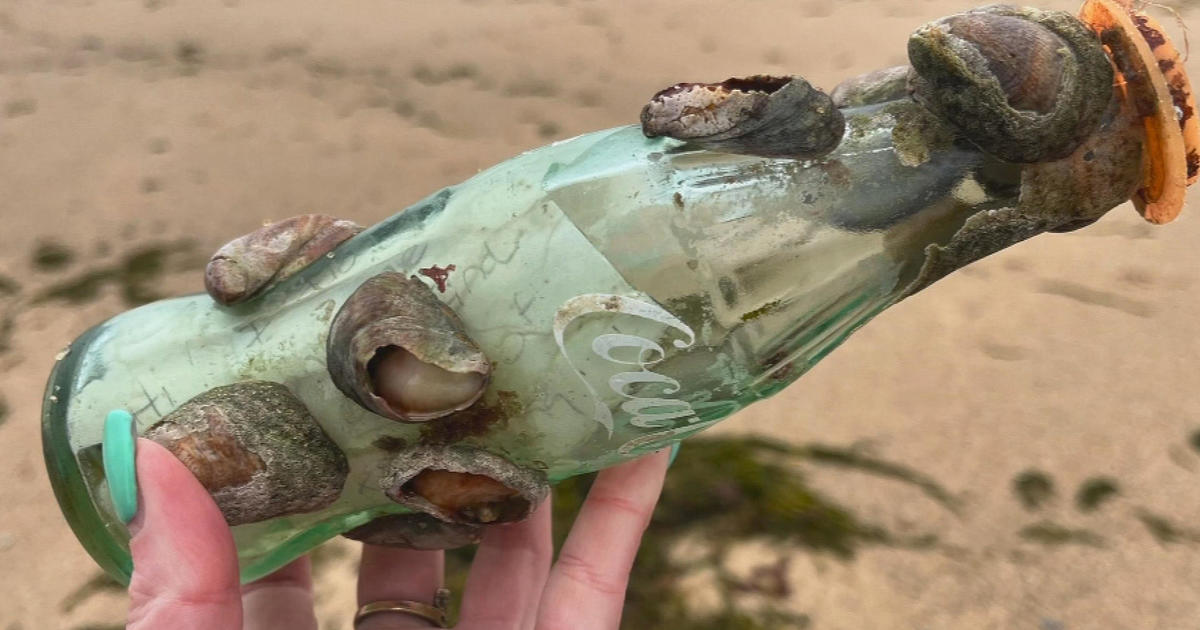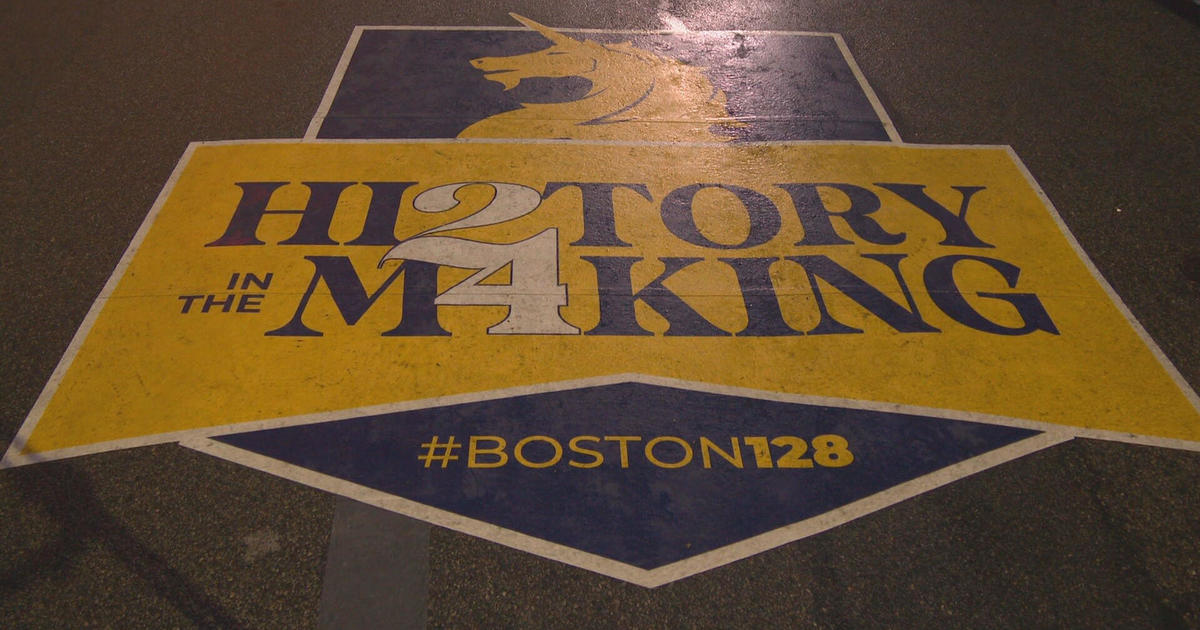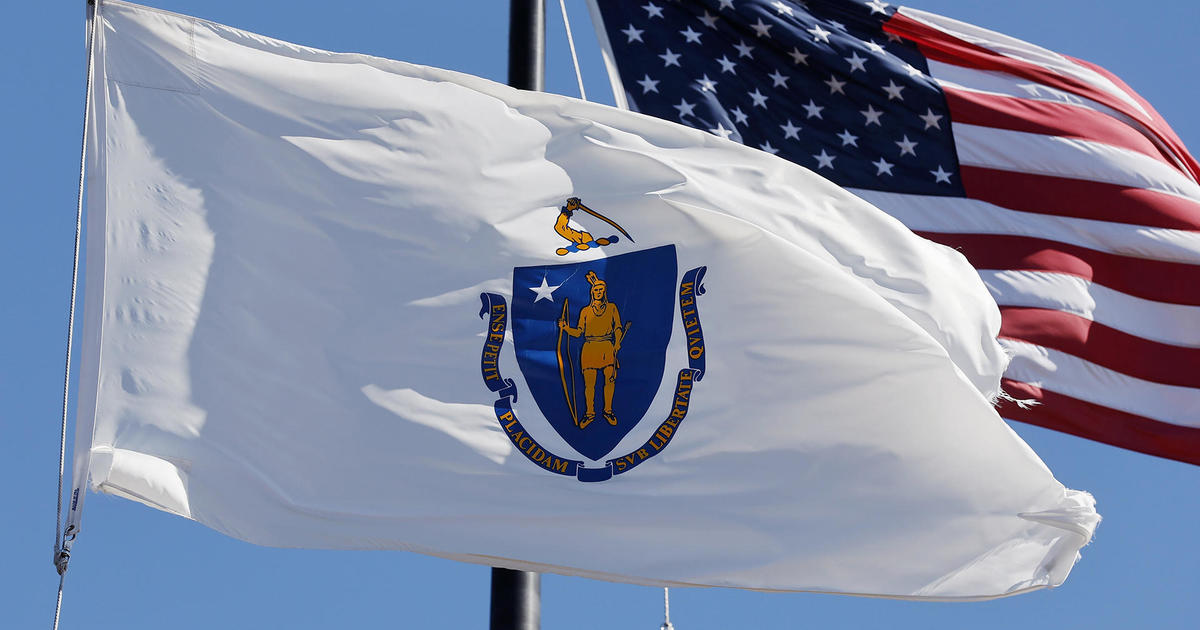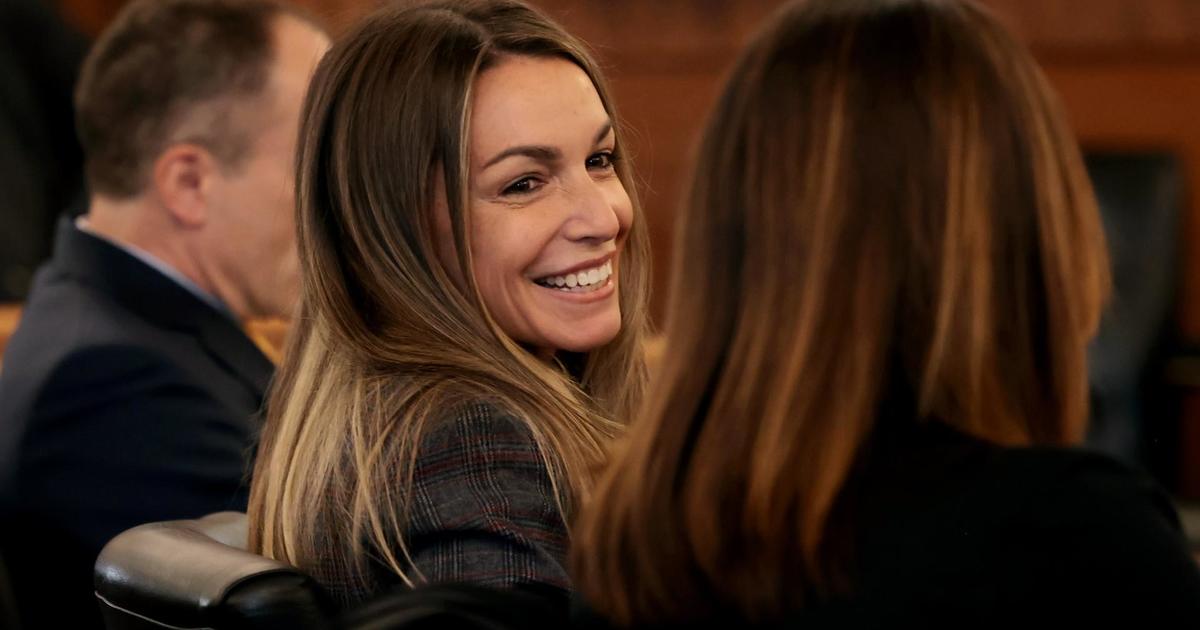I-Team: 93-Year-Old Veteran Denied Treatment For COVID-19 As State Prioritizes Unvaccinated
WORCESTER (CBS) - Inside a tiny trailer outside UMass Memorial hospital, COVID-19 patients are being treated with monoclonal antibodies. "This is hands down the most effective anti-viral treatment we have against COVID," explained Dr. Sandeep Jubbal. So far, 2,500 patients have received the infusion here and according to Dr. Jubbal, most start to feel better within hours. "I think given the efficacy, it should be given out like water to everybody," he said.
But it is not. A woman who lives north of Boston and did not want to be identified said her father, a vaccinated, 93-year-old veteran struggling with COVID, was told he could not get the potentially life-saving treatment. "I got a call from his doctor saying he had been denied for monoclonal antibodies and they were going to prioritize the unvaccinated. I was heartbroken," she said.
The I-Team has learned that hospitals are not able to meet the increased demand for treatment, not because of an issue with supply, but a shortage of staff and space to administer the treatments. According to state-issued guidelines, providers are advised to prioritize the unvaccinated and the immunocompromised.
The 93-year-old veteran was not a UMass Memorial patient, but Dr. Jubbal told us they too are struggling to keep up with demand. "Some patients that we have to turn away because we are prioritizing based on those state guidelines… Anyone who is unvaccinated is considered highest risk of severe outcome from COVID," he said.
In September, the I-Team introduced you to a Duxbury woman who was denied the treatment by two hospitals, before finally getting the infusion at a third hospital on the last day she was eligible. "I was deathly, deathly sick," she said.
At the time we reached out to several major Boston Hospitals who told us they had plans to make the treatment more available. Most of those hospitals have increased their infusions but are still not able to give it to everyone who needs it.
The state has also set up three mobile infusion sites and a spokesperson for the Department of Public Health tells us they too have significantly increased their capacity.
Dr. Jubbal told us he would like to see hospitals and the make the treatment available to more people. The daughter of the 93-year-old vet, who is recovering at home after spending several days in the hospital, agrees. "I hope our government fixes it. It's not getting to the people who need it. It's terrible," she said.
Both the state and federal guidelines say providers should use their clinical judgement when prioritizing the use of monoclonal antibodies. The state Department of Public Health tells the I-Team they are looking into what happened in this veteran's case.
His daughter tells us that after being hospitalized and very sick, her dad was recently released and is recovering at home.
The I-team reached out to several major hospitals about their monoclonal antibody treatment availability. Here's what they told us:
Beth Israel Lahey Health:
"…we have opened a second location offering monoclonal antibodies within the B¬¬eth Israel Lahey Health system – at Lahey Hospital & Medical Center in Burlington – in addition to Beth Israel Deaconess Medical Center in Boston. Our staff are working tirelessly to treat as many patients as they can with the resources we have available. There continues to be a high demand for monoclonal antibody treatment. Consistent with federal guidelines (see below) as well as Mass DPH guidelines, we are prioritizing the highest risk patients for treatment, including symptomatic patients who are immunosuppressed and those who are unvaccinated. Again, our approach is consistent with the NIH and Mass DPH guidelines. To date we have treated approximately 450 patients across both locations and are currently delivering approximately 80 treatments per week across both sites.
Notably, we and hospitals across the country are facing challenges associated with nursing workforce shortages that are limiting our ability to administer treatment. We have robust recruiting efforts underway and are looking to expand our ability to administer this treatment including opening several additional sites that will increase our capacity in the coming weeks.
Mass General Brigham:
Every week we are adding additional capacity for more treatment. We have spots for about 250 treatments per week (combination of infusion and subcutaneous injections) across the MGB system. Depending on the day we can accommodate 50-75% of our referrals for treatment and we prioritize patients at the highest risk for COVID complications. Demand for monoclonal antibody treatment is higher than our capacity available and capacity is limited by our staffing constraints. MGB is receiving the supply that we request from the state.
Tufts Medical Center:
We continue to do up to 8 monoclonal antibody infusions per day. We have not expanded capacity and do not have the ability to do so given our current resource limitations (space availability, RN staffing, etc.). We have sufficient supply of monoclonal antibodies on hand.
State Department of Public Health:
• The Department of Public Health (DPH) receives a bi-weekly allocation of monoclonal antibodies (mAb) from the federal government and coordinates
distribution through a request process to approximately 30 sites statewide.
• DPH fills requests from health care providers weekly.
• Additional information about mAb allocation to health care providers, including data-reporting requirements, is outlined in the latest DPH guidance.
• Since November 3, monoclonal antibody infusions in Massachusetts have increased by 58%, with 993 infusions reported the week of 11/28-12/4.
• DPH has contracted with emergency management company Gothams to facilitate the opening of three mobile sites in Holyoke, Everett and Fall River for
monoclonal antibody therapy for high-risk patients who have been exposed to or have COVID-19.
• Gothams is continuing to add capacity and last week they increased the number of appointments at all three mobile clinics.
• Any provider may refer a high-risk patient to Gothams for monoclonal antibody therapy.
• Patients with COVID-19 are referred for mAb treatment by their health care providers when they are considered to be at high risk for progression
to severe disease.
• Treatment requires a medical order and the decision for mAb referrals and treatment are made by the patient's health care provider.
• A map of mAb therapy sites can be found here
• DPH will look into the issue detailed in your email.



